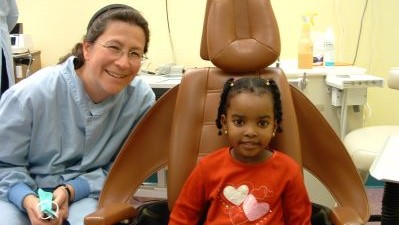
Dental therapists are one way to meet this need now.
As February, National Children’s Dental Health Month, comes to a close you will likely have read about or seen on television some of the wonderful things that dentists have done this month to provide care to the underserved – some dentists opened their doors and offered free examinations, others provided free care, while still others visited classrooms and provided education.
These dentists should be recognized and thanked for their service. Many of them took time away from their patients to give back for the wonderful profession of which they’re a part and the life it has given them and their families. There will have been important messages imparted, like the importance of brushing and flossing, having two dentist visits a year and eating properly. It’s all admirable and very necessary.
But here’s the issue: access to dental health and the need for preventive education isn’t just an issue in February. Even more, dentists can’t – and shouldn’t – be expected to solve the problem alone. Our country’s unmet oral health care needs simply cannot be met in a single month by a single type of provider. We have a much larger societal problem.
According to the U.S. Department of Health and Human Services, more than 57 million Americans do not have access to the oral health care they need. A statistic which includes tens of millions of our nation’s most vulnerable children.
This is a very significant gap in our health care system that needs to be addressed. And soon.
So, what can we do?
We can start by addressing the inequities in our current system. As dentists, we have an obligation to do so which means developing high-quality, cost-effective, evidence-based models that work.
Dental therapists are one way to meet this need now and they have already been authorized as part of the dental care team in several states across the country. Dental therapists are proven to provide safe, quality care where they are practicing and are able to perform routine and preventive services, as well as fill critical gaps in communities by making dental care more accessible for underserved populations.
Dental therapists work under the supervision of a dentist. The care they provide complements the supervising dentist and members of his/her staff by extending their reach, providing oral health education and common dental procedures such as filling cavities and extracting already loose teeth. Through the off-site supervision of a dentist, dental therapists can also deliver care in settings that better meet the needs of underserved communities.
The quality of the services dental therapists are able to provide has been demonstrated time and again to be equal to that provided by dentists. They allow dentists to extend care, at a lower cost, to those who otherwise are not receiving any. Further, dental therapists are often recruited from communities in need and then return to those communities to provide care.
Dental therapists are improving lives across the country.
Dental therapy alone is not the only answer, but, after 15 years of practicing in the United States, dental therapy has proven to be a substantial piece of the solution.
Dr. Hill is a founding member and Chair of the National Coalition of Dentists for Health Equity.
###
